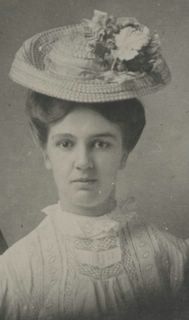I sit with a blank page on my laptop watching my reflection in the large black monitor on my son in law’s desk. The picture I see looks like a ghost of either Christmas past or Christmas future, perhaps both. It seems a line has been drawn across my life this year with bittersweet endings on one side and uncertain beginnings on the other…
The long and arduous relationship with my mother in law appears to be coming to an end as she lies in a hospital in Roanoke gravely ill. I have never been able to feign any words of endearment toward her, although I recognize that she has accidently taught me many lessons. It still makes my stomach churn to think of her lying there alone, even though it is doubtful that she is aware of much around her. I cannot count the times I have wished her out of my life, but now I find there is no triumph for me in her passing. I believe that in this I have followed my children’s example of forgiveness and acceptance. My husband’s mother passed before he and I married and my mother lived far away and died when they were young. So with all her faults she has been the only grandmother that has had a relationship with them.
My mother would have been proud of my daughter for taking on the duties of Christmas this year. Although my children do not remember much about my my mother, the ceaseless work and attention to detail Eva showed preparing a wonderful meal for friends and family reminded me so much of her. In contrast, I did not so much as put up a tree this year. I admit that the passing of the reins is not without some trepidation. After so many decades of sitting in the driver’s seat it was strange hearing the words I used to tell everyone else directed at me. “Just sit back and relax”. I have no practice at this indolence and I find it bewildering, like being a child told to stay out from underfoot.
I empathize with my newly mobile grandson who clammers at the baby gate, wishing to be in the thick of things. Looking at him I know I should not waste a second bemoaning times past. Both of us just need to acquire the necessary tools and understanding to function in this new order. It’s nice to have so much in common with him actually, although I doubt he would see it that way. I am bursting with optimism about the future and it is obvious he feels the same. He is unaware of how much I am learning from him about persistence and ignoring barriers.
My favorite inspirational phrase this year is on a card at my work desk, “Life rewards those who let their actions rise above their excuses”. This quote is reportedly by Lee Colan, an organizational guru, and it was passed to me in an email from my director. The same email also quoted Jedi Master Yoda “Do or do not, there is no try”. I am ashamed to admit that although I have read an reread them, I have not taken the words to heart like I should. Instead of doing, I have been trying. As I have watched my grandson Logan progress from being stuck where ever he was placed by an adult to a fearless independent locomotion I recognize his total grasp and application of the attitude I am striving to learn. The fact that he would walk straight off the edge of a cliff with his newfound skills is not lost on me and neither is the inordinately strong and ultimately ineffectual will to live exhibited by my step mother in law. I however have no excuses not to succeed at anything I want. I have the common sense not to walk to the edge of the Grand Canyon and jump, but the health and fortitude to strap on a parachute and leap out of an airplane. I’m not saying skydiving is in my immediate future but perhaps something equivalent, only slightly less terrifying. I’ve never quite overcome my fear of heights you see, but like the young Jedi I am not trying. Let me just say welcome to the fresh new year and give you one more homily, this one from tinybuddah.com.
“Death is more universal than life. Everyone dies but not everyone lives.” ~Alan Sachs




